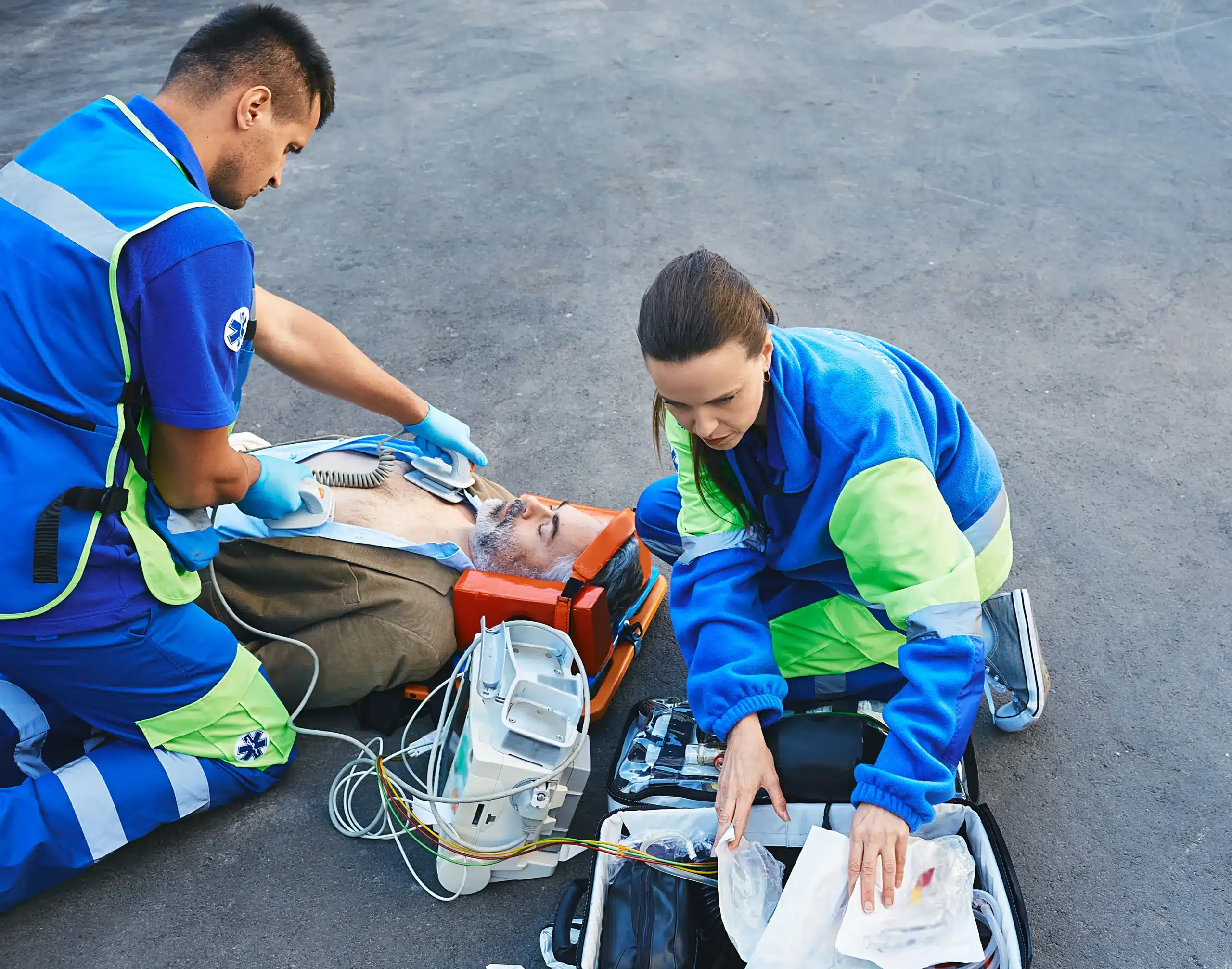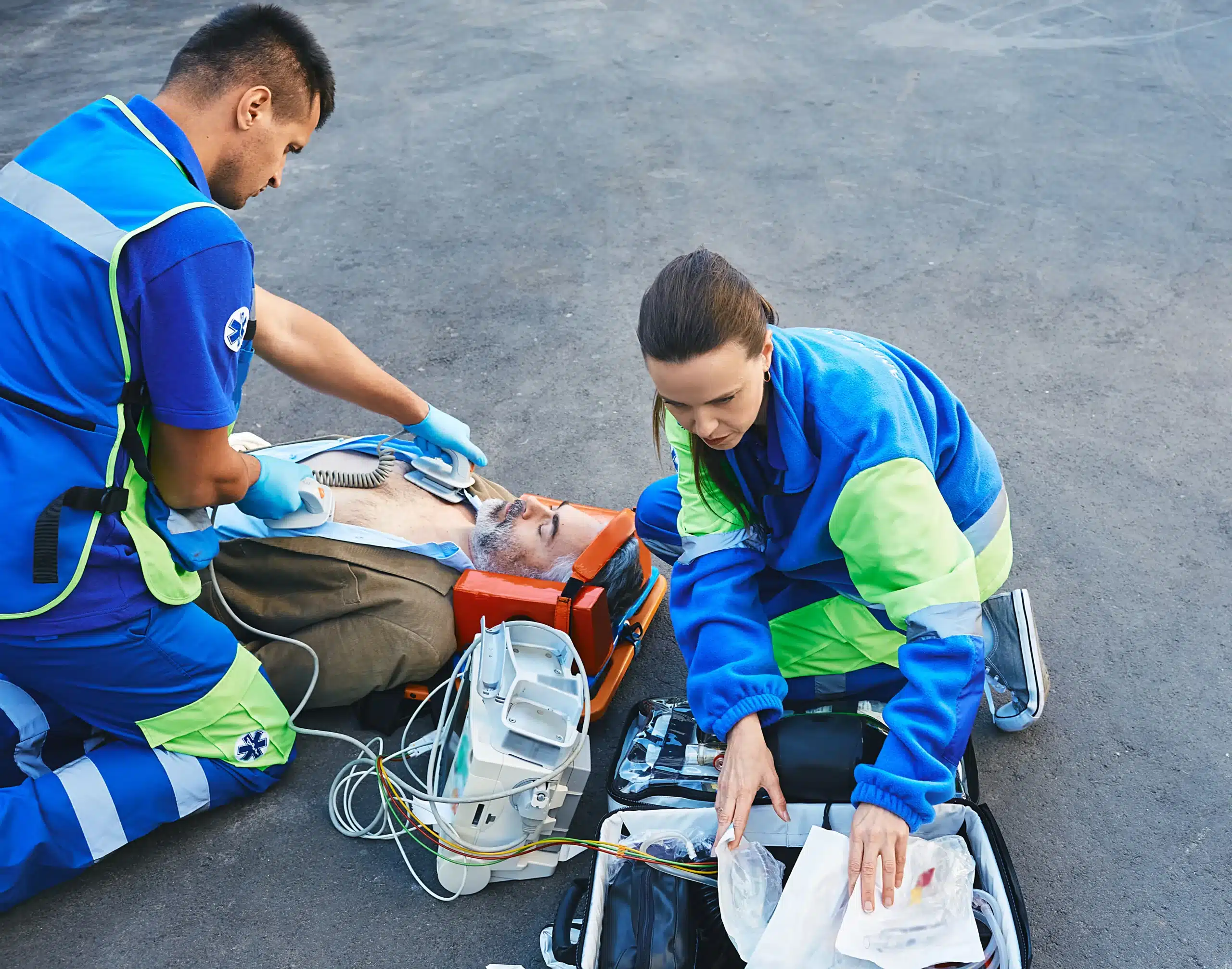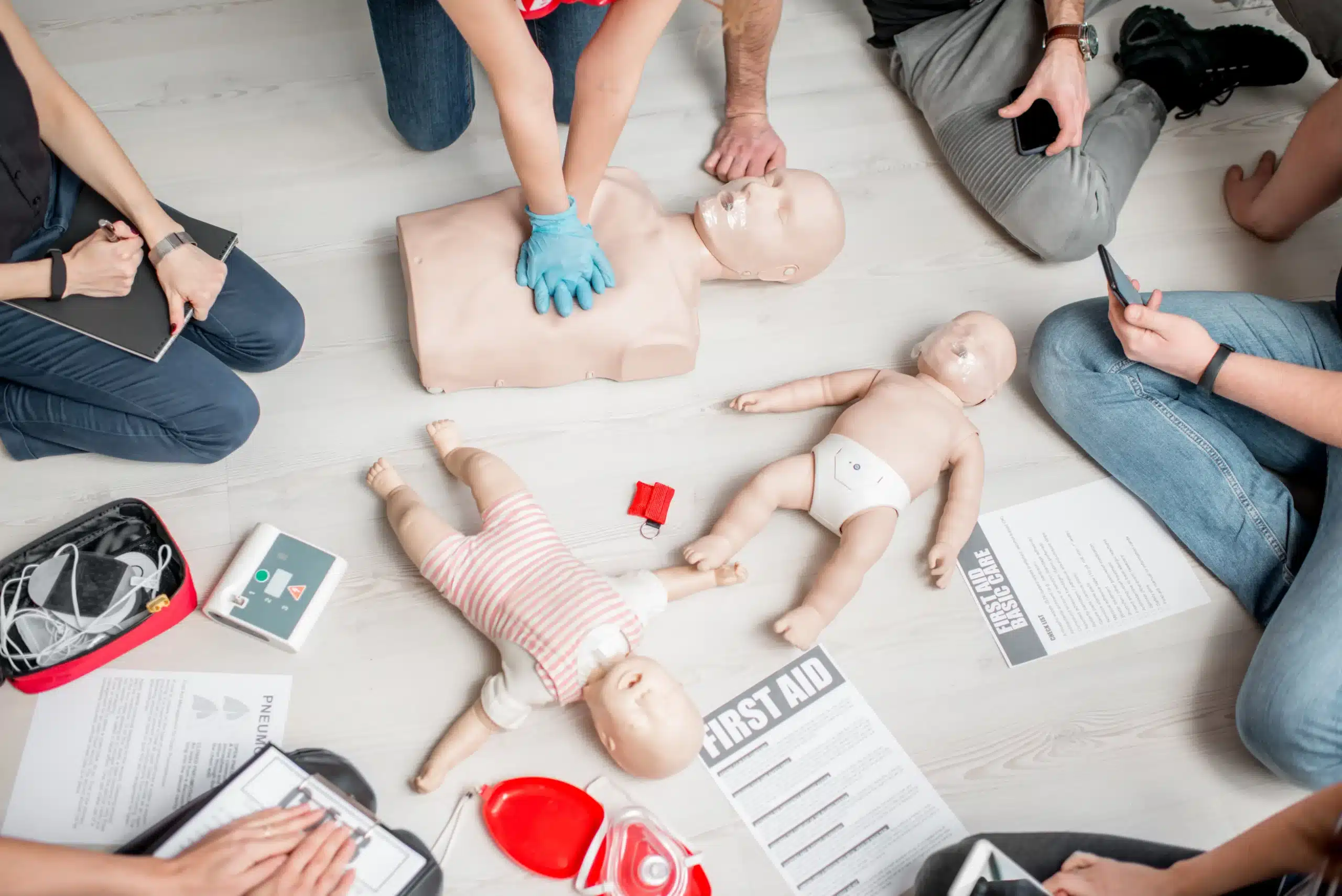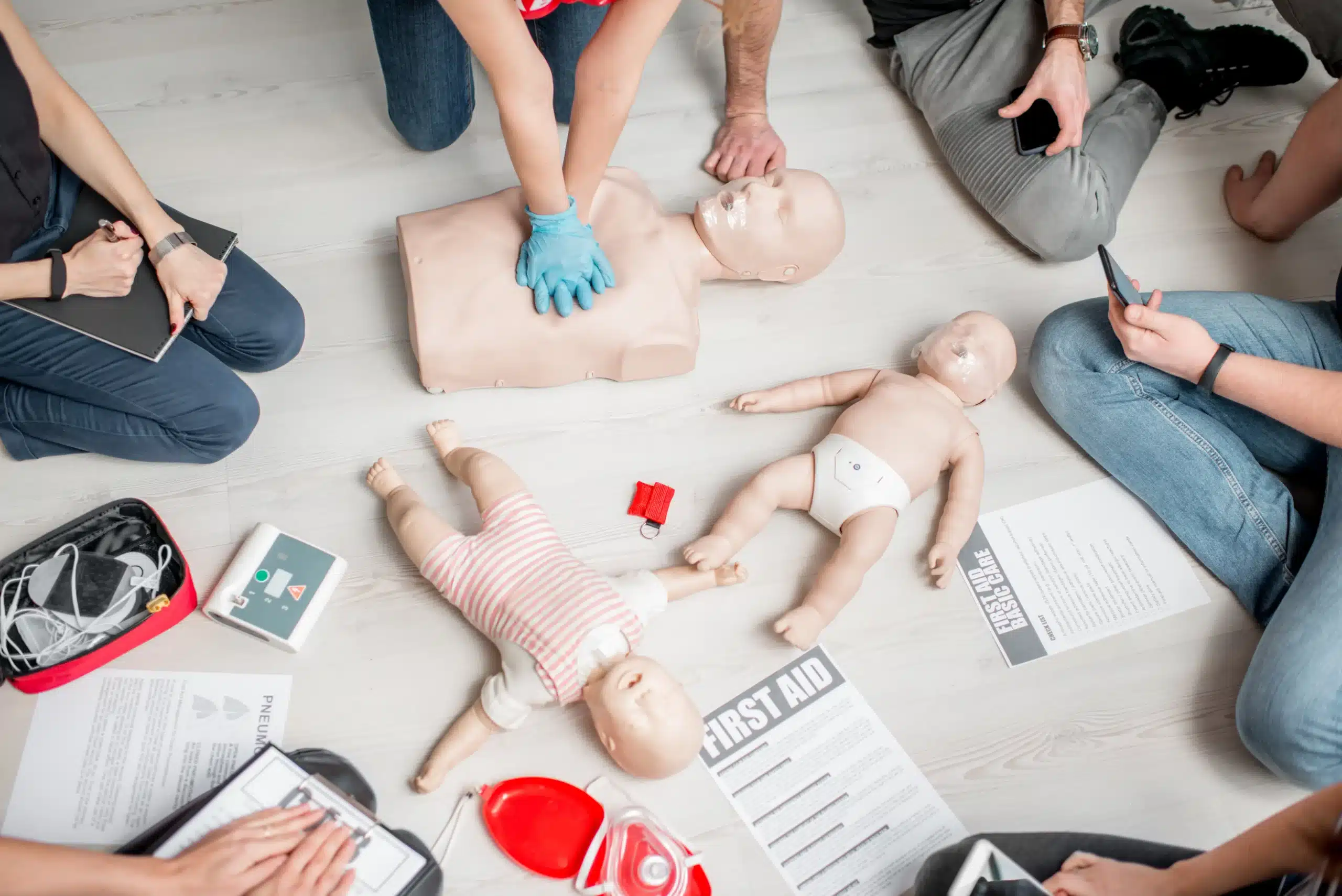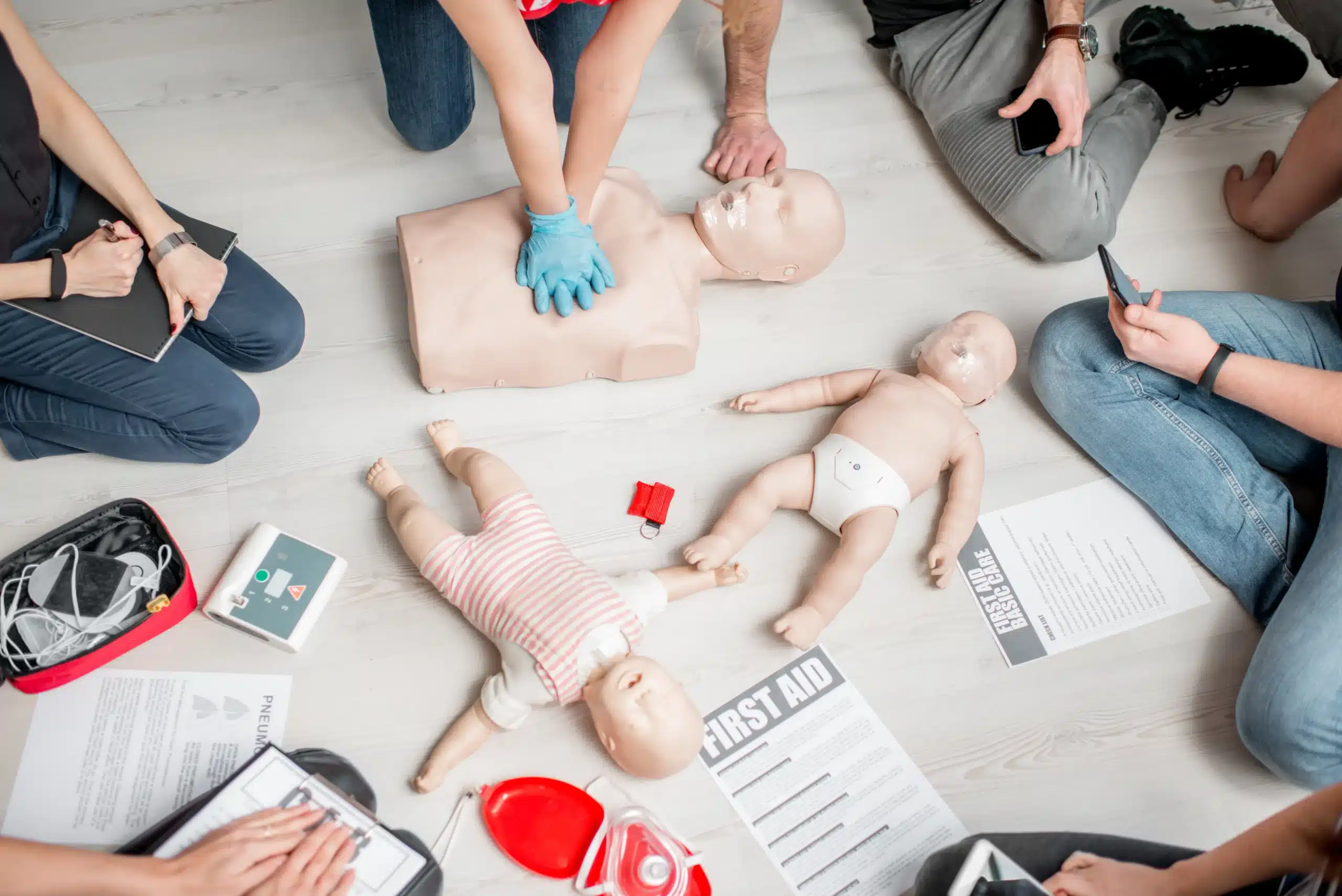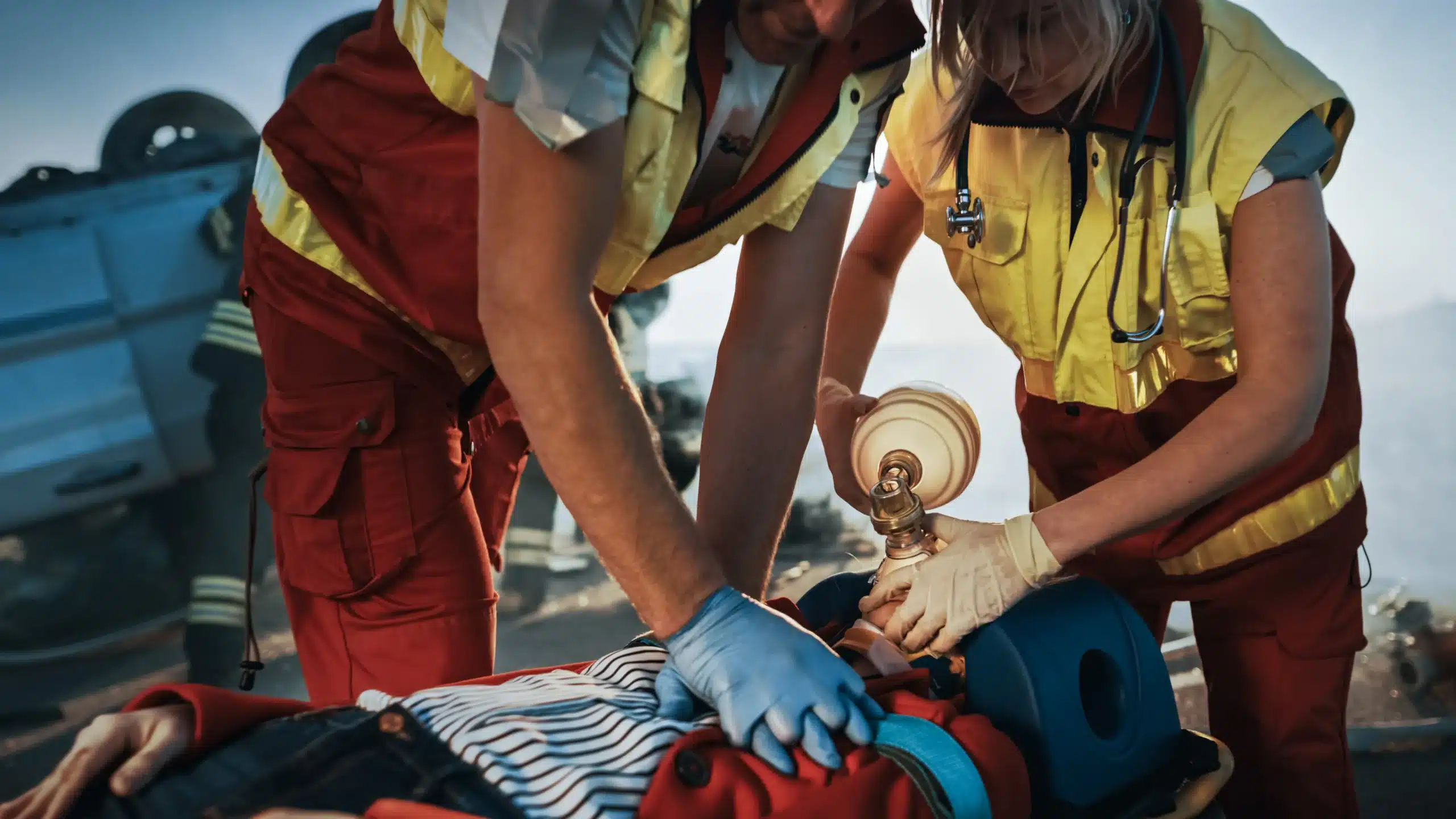As a healthcare professional, your skills and knowledge directly impact the lives of your patients. Staying up-to-date with the latest advancements in pediatric care is not just important—it’s essential. Pediatric Advanced Life Support (PALS) certification equips you with the tools and techniques to confidently manage pediatric emergencies. But finding the time for traditional classroom training can be a challenge. That’s where online PALS classes in Concord come in. They offer a flexible and convenient way to acquire this vital certification without disrupting your busy schedule. This article will guide you through everything you need to know about online PALS classes in Concord, from course structure and format to cost, prerequisites, and the certification process.
Key Takeaways
- PALS certification made accessible: Blended learning makes PALS certification more manageable than ever, combining online learning with hands-on skills sessions. This flexible approach accommodates busy schedules while ensuring comprehensive training.
- Find the right fit: Research various providers, comparing costs, course structures, and included materials. Prioritize accredited programs with reputable organizations like the AHA to ensure recognized certification.
- Active learning is essential: Maximize your online PALS experience by actively engaging with the material, utilizing supplemental resources, and thoroughly preparing for the in-person skills check. Plan for recertification to maintain your qualifications.
What are Online PALS Classes?
Online PALS (Pediatric Advanced Life Support) classes offer a blended learning approach, combining online modules with in-person skills sessions. This hybrid format allows healthcare providers to learn the cognitive portion of the course at their own pace, then demonstrate their skills in a hands-on setting. It’s a convenient way to fit essential training into a busy schedule. Think of it as getting the best of both worlds: the flexibility of online learning with the practical application of in-person training.
What is PALS Certification?
PALS certification focuses on a systematic approach to pediatric assessment, basic life support, PALS treatment algorithms, effective resuscitation, and team dynamics. The training equips healthcare professionals with the knowledge and skills to effectively manage pediatric emergencies. This specialized training covers a range of critical situations, from respiratory distress and shock to cardiac arrest, ensuring healthcare providers are prepared for a variety of scenarios. Learn more about PALS Certification.
Benefits for Healthcare Professionals
Holding a current PALS certification is often a requirement for many healthcare roles involving the care of infants and children. It demonstrates a high level of competency in responding to pediatric emergencies. Beyond meeting job requirements, PALS certification empowers healthcare providers to confidently manage critical situations and provide the best possible care during emergencies. This specialized training provides the tools and techniques needed to make a real difference in the lives of young patients.
Flexibility and Convenience of Online Learning
Online PALS courses offer incredible flexibility, allowing you to learn at your own pace and on your schedule. You can study whenever and wherever it’s most convenient, fitting the coursework around your other commitments. Many online PALS courses also provide continuing education credits, simplifying the process of maintaining your other professional certifications. This blended learning approach makes acquiring and maintaining this vital certification more accessible than ever before. For those seeking convenient and flexible training options, explore our RQI classes.
Find Top Online PALS Class Providers in Concord
Finding the right PALS certification course can feel overwhelming, so we’ve compiled a list of reputable providers offering online or hybrid (online and in-person) options in Concord. Remember to confirm all details and schedules directly with the provider before registering.
Safety Training Seminars
Safety Training Seminars offers AHA-certified PALS courses alongside other essential certifications like CPR, First Aid, BLS, and ACLS. Their flexible scheduling and blended learning options, combining online coursework with in-person skills sessions, make it easier for busy professionals to fit training into their schedules. This blended learning approach lets you learn the material at your own pace online, then practice your skills in person.
Concord CPR Classes
Concord CPR Classes focuses on providing AHA PALS certification with a combined online and in-person format. Designed to be accessible and affordable, their courses cater specifically to healthcare providers in the Concord area. The online component provides the convenience of self-paced learning, while the in-person sessions ensure you gain practical, hands-on experience.
American Heart Association
The American Heart Association offers its own PALS Provider Course, recognized for its comprehensive curriculum and focus on improving pediatric patient outcomes. This course emphasizes both individual skills and high-performance team dynamics, preparing healthcare professionals to effectively manage pediatric emergencies. The AHA’s widely accepted certification makes it a solid option.
Red Cross
The American Red Cross also provides a PALS certification program. They emphasize the scientific basis of their training and aim to equip healthcare providers with the skills to confidently respond to pediatric emergencies. Check their website for course details and availability in your area.
SureFire CPR
SureFire CPR offers PALS certification courses for both initial certification and renewals. With in-person and hybrid online/in-person options available, they aim to provide flexible training solutions for healthcare professionals. Visit their website for the latest course schedules and formats.
Understand Online PALS Course Structure and Format
Online PALS courses offer a convenient way to develop your lifesaving skills. It’s helpful to understand how these courses are structured. The blended learning approach combines online modules with an in-person skills session. This format gives you the flexibility to learn the material at your own pace and then demonstrate your skills in a hands-on environment. Let’s break down each component:
Hybrid Learning Approach
Online PALS courses typically use this hybrid learning model. You’ll complete the coursework online at your own pace and then schedule a separate in-person skills session. This approach offers flexibility for busy professionals. It also allows you to focus on mastering the material before demonstrating your skills. Brentwood CPR Classes offers more insights into this blended learning style.
Online Modules and Interactive Content
The online portion of a PALS course usually involves interactive modules, videos, and simulations. These elements create an engaging learning experience and help you understand complex concepts. You can also practice your decision-making skills in a safe, online environment. Many courses incorporate real-world scenarios to make the learning more relevant and effective. You can find more information about online PALS courses at ACLS.com.
In-Person Skills Assessment
After you complete the online modules, you’ll attend an in-person skills check. This session allows you to demonstrate your proficiency in essential PALS techniques under the guidance of a certified instructor. The American Heart Association provides details on the timing of these sessions, which can vary depending on the specific course.
Duration and Time Commitment
The online portion of a PALS course generally takes between three and four hours to complete. This can vary based on your learning style and pace. The in-person skills session is typically shorter, often lasting under an hour. Concord CPR Classes offers a helpful overview of the time commitment for each part of the course. Remember to factor in travel time to the in-person skills check location.
Real-World Application and Scenarios
PALS certification equips you with the skills to provide advanced life support to infants and children. This specialized training is invaluable for healthcare providers. It’s especially helpful for those working in emergency rooms, intensive care units, and other critical care settings. Roseville CPR Classes highlights the importance of PALS certification in various healthcare roles. This training can boost your confidence and prepare you to respond effectively in real-world emergencies.
Determine Cost, Prerequisites, and Certification Process
Before you jump into a Pediatric Advanced Life Support (PALS) course, it’s good to understand the investment, what you need to know beforehand, and how you actually get certified. Let’s break down these key factors:
Average Price Range and Additional Fees
PALS courses vary in price, so doing a little comparison shopping is smart. You’ll find programs with a range of price tags, and sometimes additional fees for things like study materials or exam retakes. For example, some providers in Concord offer competitive pricing, like $290, and even have price-matching policies to help you find the best deal. Knowing the average cost in your area helps you budget effectively and avoid any surprises.
Required Certifications and Background Knowledge
PALS builds upon existing knowledge, so you’ll typically need a prerequisite certification, such as Basic Life Support (BLS) certification, before enrolling. This makes sense, as PALS focuses on advanced pediatric life support techniques. The Red Cross clearly outlines this requirement, specifying that PALS is designed for healthcare providers who regularly encounter pediatric emergencies. Make sure you have the necessary foundational knowledge before signing up for a PALS course.
Included Materials and Resources
Course materials can add up, so find out what’s included in the program fee upfront. Many providers bundle study materials, like manuals and online resources, with the course. This can save you money and ensure you have everything you need to succeed.
Continuing Education Credits
If you’re a healthcare professional, maintaining your certifications and licenses is essential. Look for PALS courses that offer continuing education credits. These credits can often be applied toward your professional development requirements. Online PALS classes can be a convenient way to earn these necessary credits.
Certification Card and Validity Period
Once you complete your PALS course and pass the exam, you’ll receive a certification card. This card is proof of your qualification. It’s important to note that PALS certifications typically have a validity period, often two years. Knowing this timeframe lets you plan for recertification to maintain your skills and credentials.
Choose the Right Online PALS Class
Picking the right online PALS class is a big decision. It’s an investment in your career and your ability to provide critical care. Here’s what to consider:
Accreditation and Recognition
First things first, make sure the course is accredited by a reputable organization like the American Heart Association (AHA). This ensures the curriculum meets national standards and is widely accepted. Many online PALS courses also provide continuing education credits, which can be helpful for maintaining other professional certifications. Check with your employer or licensing board to confirm the accreditation they require.
Flexibility and Scheduling Options
One of the biggest perks of online learning is flexibility. Look for a PALS course that lets you learn at your own pace and on your own schedule. Some programs offer rolling enrollment, meaning you can start anytime. Others have set start dates. Consider your lifestyle and how much time you can realistically dedicate to studying each week.
Instructor Support and Learning Resources
Even with online learning, having access to instructor support can be invaluable. See if the course offers opportunities to ask questions, whether through email, online forums, or virtual office hours. Also, check out the learning resources provided. Are there practice quizzes, interactive simulations, or downloadable materials? A comprehensive program will offer a variety of resources to help you master the material.
Assessment Methods and Certification Process
How will your knowledge be assessed? Some courses use online exams, while others require in-person skills checks. The American Heart Association offers a blended learning approach with an online portion and a hands-on skills session. Understand the certification process, too. How long is the certification valid? Will you receive a physical card or an electronic certificate? Make sure the certification aligns with your professional requirements.
Student Feedback and Testimonials
Finally, don’t hesitate to see what other students are saying. Look for reviews and testimonials that speak to the quality of the course, the instructor support, and the overall learning experience. Hearing from others who have successfully completed the program can boost your confidence and help you make an informed decision.
Maximize Your Online PALS Learning Experience
Online PALS courses offer a flexible way to gain essential pediatric life support skills, but successfully completing the program requires focus and planning. Here’s how to make the most of your online PALS experience:
Manage Your Time Effectively
One of the biggest hurdles healthcare providers face is balancing their busy schedules with the demands of PALS training. Create a realistic study plan that fits your work and personal commitments. Break down the online modules into smaller, manageable chunks, and schedule specific times for study. Consistent effort over time is more effective than trying to cram everything in at the last minute.
Apply Practical Skills
Online PALS courses often incorporate interactive exercises and simulations to reinforce learning. Actively participate in these activities. Don’t just passively watch or click through. Treat these simulations as if you were facing a real-life pediatric emergency. This will help solidify your understanding of the algorithms and interventions.
Utilize Supplemental Materials
Most online PALS courses provide core study materials. However, you might find it helpful to explore supplemental resources. Textbooks, practice exams, and quick reference guides can reinforce key concepts and help you identify areas where you need extra practice. If you need a refresher on certain topics, consider purchasing additional study materials.
Prepare for the In-Person Skills Check
Remember, online PALS certification involves a required in-person skills check. Once you’ve completed the online modules, schedule your hands-on session promptly. Review the skills checklist beforehand and practice the necessary techniques. The American Heart Association notes that the in-person skills session for HeartCode PALS typically lasts about five hours with breaks. Knowing what to expect will help you feel confident and prepared.
Maintain and Renew Your Certification
Your PALS certification is valid for two years. Mark your renewal date on your calendar and plan accordingly. Staying up-to-date with the latest guidelines and best practices is crucial for providing the highest quality patient care. Online PALS recertification is a convenient way to maintain your skills and credentials. Consider setting reminders a few months before your expiration date to avoid any last-minute scrambling.
Related Articles
- AHA PALS Classes in Walnut Creek, CA – Walnut Creek CPR Classes
- BLS HeartCode Pleasant Hill: Your Certification Guide – Walnut Creek CPR Classes
- Online CPR Classes in Walnut Creek: A Complete Guide – Walnut Creek CPR Classes
- BLS Certification in Pleasant Hill: Your Complete Guide – Walnut Creek CPR Classes
- ACLS HeartCode Pleasant Hill: Your Certification Guide – Walnut Creek CPR Classes
Frequently Asked Questions
What is the main difference between online and traditional PALS classes? Online PALS classes offer a blended learning experience, combining online modules with an in-person skills session. This allows for flexible, self-paced learning of the course content, followed by a hands-on skills assessment with a certified instructor. Traditional classes, on the other hand, involve in-person instruction for both the cognitive and skills components.
If I take an online PALS course, do I still need to do anything in person? Yes, even with an online PALS course, you’ll still need to complete an in-person skills check. This practical session allows you to demonstrate your proficiency in essential PALS techniques under the guidance of a certified instructor. It’s a crucial part of the certification process.
How long does it take to complete an online PALS course? The online portion typically takes between three and four hours, though this can vary depending on your learning style and pace. The in-person skills session is usually shorter, often less than an hour. Remember to factor in travel time to the in-person skills check location.
What are the prerequisites for taking a PALS course? You’ll generally need a current BLS (Basic Life Support) certification before enrolling in a PALS course. PALS training builds upon the foundational knowledge and skills taught in BLS, focusing on advanced life support techniques specific to pediatric patients.
How much does a PALS course cost, and what is included in the price? PALS course costs vary depending on the provider and location. It’s always a good idea to compare prices and check for any additional fees, such as those for study materials or exam retakes. Many providers include study materials, like manuals and online resources, in the course fee. Be sure to inquire about what’s included before registering.

